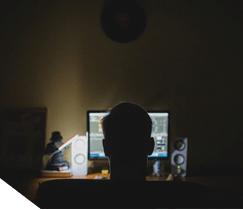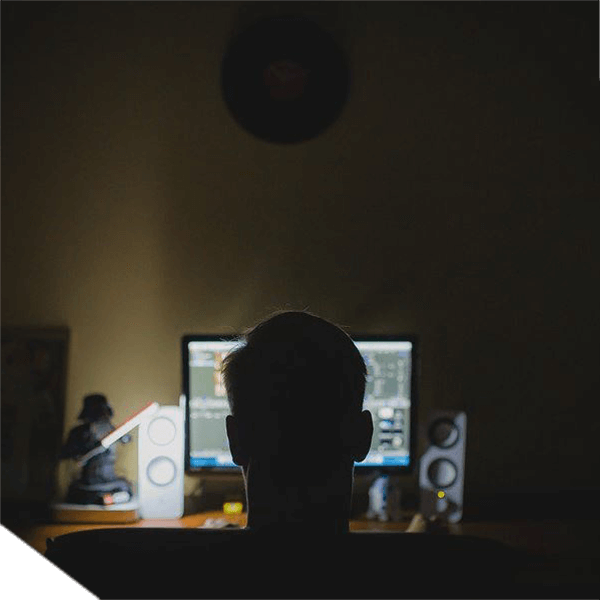
The shops that never close
The growing challenge of night-time shopping by vulnerable consumers
Online shopping can be a wonderful thing. No need to trudge round the supermarket with the kids in tow. Going out tomorrow and nothing to wear? No problem, have something delivered to the office by lunchtime. Need that very particular type of light bulb for inside your oven? Find it online, alongside a helpful video showing you how to change it. Check prices and stock online to save a wasted trip; order three sizes of jeans to try on the privacy of your own home. Quicker, more convenient, and often cheaper. What more could you want?
But online shopping has its pitfalls too. Compulsive shopping has long been recognised as a problem, particularly among those with mental health problems. And now, with shops that never close available through a device that fits in the palm of your hand, on your sofa, or in bed, consumers who struggle to control their spending find themselves at greater risk than ever before.
“I don’t sleep well at night and found myself just buying things on the internet during the night, which passed the long dark hours.”
Shopping in the small hours
Many common mental health conditions are associated with difficulties sleeping. They can also limit your ability to make judgements. Together, this combination leaves some people with mental health problems more vulnerable to impulse purchases. In isolation, these impulse buys might not be problematic. But in some cases, they lead to serious financial detriment, with people spending their savings or running up debts.
“With my depression, I don’t sleep very well, long, lonely nights, plenty of time to browse the web… the ability to buy online has added to my debt.”
Customers with mental health problems have told us that night-time shopping is particularly damaging. Between midnight to 5am, they’re up on their own, lonely and lacking sleep. The siren call of online shopping is, for many, hard to resist. Four in ten respondents to our survey told us that they spent more late at night when unwell. The combination of mental health problems and lack of sleep, both of which lead to greater impulsivity, make it much harder to say no to tempting offers – and with online shopping, those offers are only a click away.
Are ‘vampire retailers’ making things worse?
“It’s almost like [the adverts are] calling at you to have a look… Reminding me there are more retailers out there at night.”
Our research panel of ‘experts by experience’ told us that they feel unfairly targeted by email marketing and TV shopping late at night. We’ve found major retailers including Amazon, GAP and EasyJet sending emails in the dead of night, while mainstream TV channels including ITV2, Comedy Central, Dave and More4 all switch to teleshopping late at night, when there’s literally not much else on.
“I spend money online at night due to insomnia and depression. I also mainly buy for others as opposed to myself because I want to make up for how my illness affects them and to make people like me. When I do buy for myself I always think it will ‘cheer me up’ but it never does and I’m left with debt which further fuels my depression.”
Taking back control
Online purchases already benefit from strong consumer protections and the right to return. But for many people experiencing mental health problems, which may make it difficult to make it out of the house to the post office, make dealing with the logistics of the returns process too stressful, or create feelings of embarrassment and guilt, this isn’t enough. Greater support is needed, but at the same time we want to make sure that consumers can continue to benefit from the convenience offered by online retail and teleshopping.
The solution, we believe, is to create flexible settings, which would allow consumers to restrict their own access to online retail or teleshopping in a way that works for them. The following ideas have all been proposed by members of our research panel as tools that would help them to protect themselves from financial self-harm in the night.
- Consumers should be able to set the opening times of online shops, so you can remove the option of shopping at night if it’s particularly tempting.
- Online stores could also offer the option to ‘freeze’ purchases made at night until approved the next morning.
- People should be able to opt out of the types of marketing that they find most problematic, for example marketing at night, either from individual retailers or through their email programme.
- And everyone should have the ability to turn off shopping channels, including blocking shopping content on Freeview channels which show non-shopping content during the day. We already provide consumers with the ability to block adult content by default, a similar block could be very helpful for those people who find teleshopping a real problem.
The evidence is growing that our predatory retail environment can cause real harm, both financially and psychologically, particularly for people with mental health problems. We need to take these risks as seriously as those posed by gambling or adult content online, and allow people the same freedoms to control these risks and to protect themselves from harm.
Find out more:
